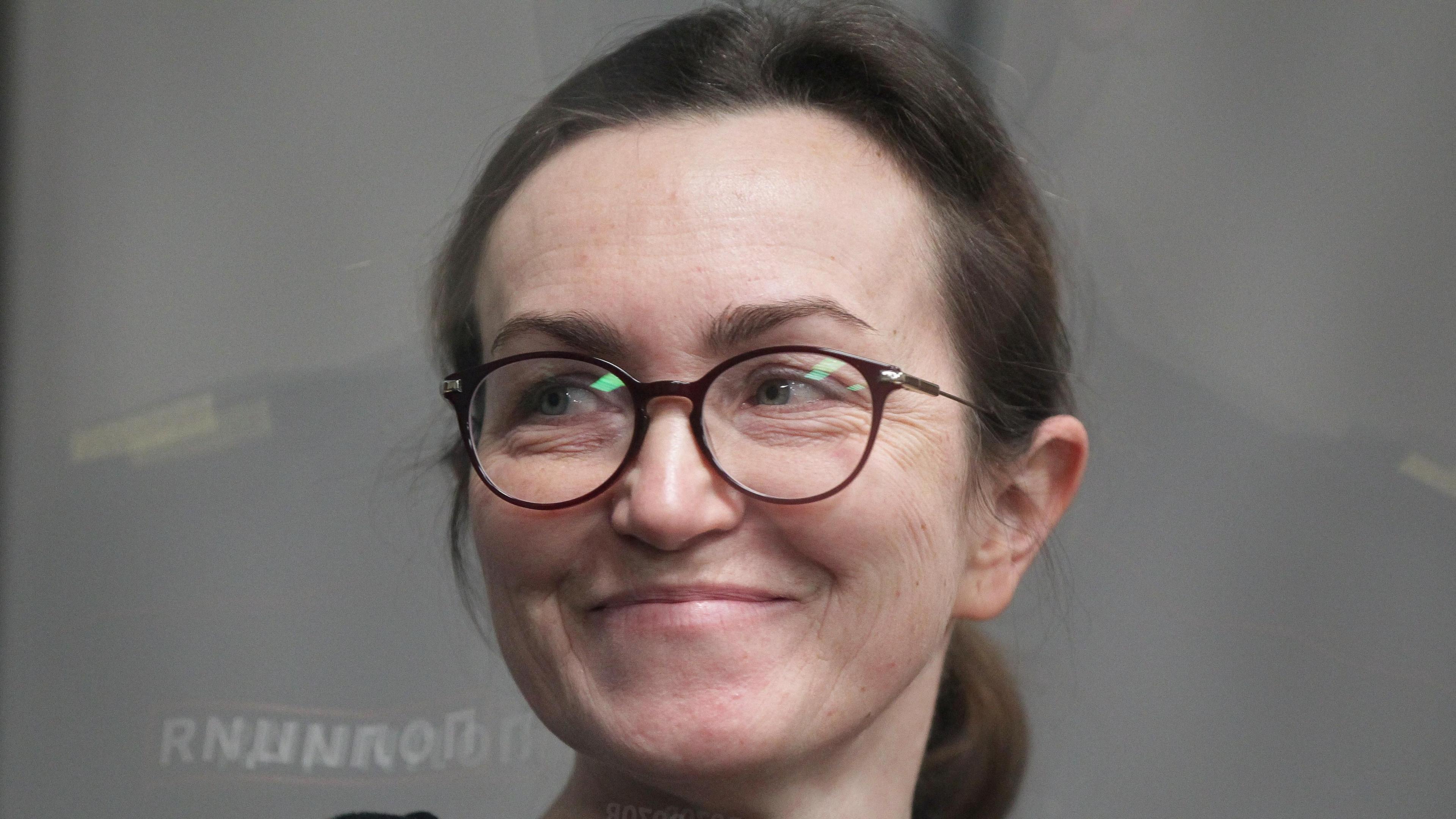Russian-US journalist jailed for 'false information'

Kurmasheva's work has focused on issues facing ethnic minorities on central Russia
- Published
Russian-American journalist Alsu Kurmasheva has been jailed for six-and-a-half years by a court in the central city of Kazan on a charge of spreading false information about the Russian army.
An editor for US-funded Radio Free Europe/Radio Liberty (RFE/RL) said the mother of two was arrested in Russia last October for failing to register as a foreign agent.
She was sentenced on Friday, court officials said, the same day that fellow US journalist Evan Gershkovich was jailed for 16 years for espionage.
Ms Kurmasheva denies any wrongdoing, and Stephen Capus, RFE/RL president and CEO, told the AP news agency that her conviction was "a mockery of justice".
"It’s beyond time for this American citizen, our dear colleague, to be reunited with her loving family," Mr Capus added.
In a statement to the BBC, her husband Pavel Butorin said: "The girls and I know Alsu has done nothing wrong. And the world knows it too. We need her home."
Speaking to journalists when her custody was extended in May, Ms Kurmasheva said she had not spoken to her two daughters since her arrest, adding that her health was deteriorating.
Ms Kurmasheva, who holds both US and Russian citizenship, works for RFE/RL's Tatar-Bashkir service. The two languages are closely related and spoken by indigenous peoples in two central Russian regions.
Ms Kurmasheva's work frequently focused on issues facing the ethnic minorities of central Russia.
According to RFE/RL, Ms Kurmasheva, who lives in the Czech Republic, travelled to Kazan in late May last year for a family emergency. She was detained while waiting for her return flight and her Russian and American passports were confiscated.
In Russia it is illegal to fail to declare a US passport.
She was fined, then arrested months later on the "foreign agent" charge. In December, while in custody, she was hit with the more serious charge of spreading false information.
It is believed her conviction may be linked to a book she edited in 2022 entitled Saying No to War, containing interviews with and stories from Russians opposed to the invasion.
Independent Russian media organisations and press freedom watchdogs say repressive laws are routinely used by Russian authorities to harass journalists and stifle independent reporting.
The situation has worsened since the invasion of Ukraine, with the "false information" charge commonly used to stamp out criticism of the war.
The charge was rushed through Russia's rubber-stamp parliament shortly after 24 February 2022 - the day Moscow launched its invasion of Ukraine.
Kremlin spokesman Dmitry Peskov said at the time it was "urgently needed because of the absolutely unprecedented information war waged against our country".
Russia has been accused of hoarding US citizens to use as bartering chips to secure the release of Kremlin allies imprisoned abroad.
Mr Gershkovich's sentencing on Friday raised speculation of a possible swap with Russian prisoners held in foreign jails.
The speed of his conviction led some observers to believe that an exchange was imminent.
According to Russian judicial practice, an exchange generally requires a verdict to be in place already.
But while a possible swap for Mr Gershkovich was mentioned by Russian President Vladimir Putin during an interview with US journalist Tucker Carlson in February, Ms Kurmasheva's fate is less clear.